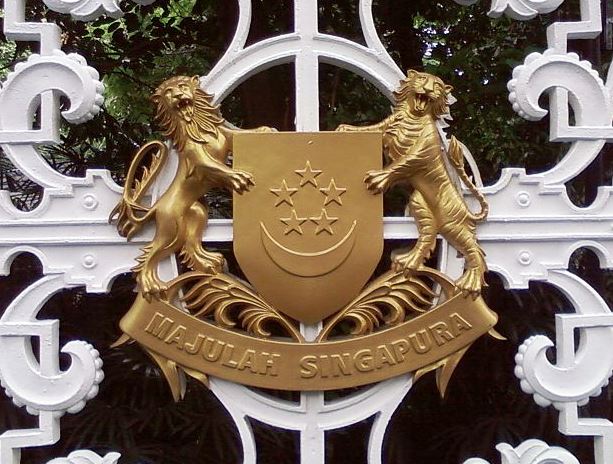The Inland Revenue Authority of Singapore (IRAS), the entity responsible for the country’s tax law, has decided to recognize Bitcoins as “goods”, not a currency, and issued some guidelines on how to handle capital gains, earnings and sales tax on Bitcoin exchanges and related sales.
The authority revealed the decision by sending several emails to the Singapore-based Bitcoin brokering platform Coin Republic, who sought clarifications regarding the government’s position towards the taxation of cryptocurrency transactions. The emails explain which kind of operations will be the target of Singaporean taxes.

From now on, the companies that deal in Bitcoin – whether it is buying and selling it or exchanging the digital currency for other goods and services – and are registered in the island are ordered to pay taxes for these transactions.
Singapore’s view on Bitcoin seems to echo the opinions already made public by other countries, such as Norway or Germany, that also consider the digital coin taxable.
In the case of companies that buy or sell Bitcoins, the declared taxes should be based on gains from the sales of the cryptocurrency. On the other side, if said companies decide to invest in Bitcoin for the long-term, then all gains will be capital in nature and not taxable.
When Bitcoin is accepted as a payment for goods or services, the transactions should be treated as barter exchanges because Bitcoin is not considered money or currency by the government, but rather a “good”. So, the Goods and Services Tax (GST) – which is currently pegged at seven percent – could apply to both Bitcoins and the goods or services being exchanged.
However, the virtual currencies used in the gaming world are free from the tax, as Techinasia.com reports.
In other case, if a company is buying and selling Bitcoin directly to customers, like exchanges do, the tax applies to the full amount received and also to the commission fees. Nevertheless, this rule is only mandatory for the businesses registered in Singapore.
 Back in late December, the Monetary Authority of Singapore announced that digital currencies wasn’t regulated in the city-state so far and that the local companies and merchants are free to accept and transact in cryptocurrency. They still are, but now there are rules to follow and taxes to pay.
Back in late December, the Monetary Authority of Singapore announced that digital currencies wasn’t regulated in the city-state so far and that the local companies and merchants are free to accept and transact in cryptocurrency. They still are, but now there are rules to follow and taxes to pay.
According to David Moskowitz, from Coin Republic, “the guidance which IRAS laid out is rational and well thought out. As a business owner, I can clearly account for my earnings on Bitcoin trades for my clients and my own positions and pay the proper taxes”.
The service representative published parts of the emails sent by the tax authority on the platform’s website:
Income Tax Treatment
Companies which are in the business of buying and selling bitcoins will be taxed based on the gains from their sales of the bitcoins. On the other hand, if the bitcoins are part of the company’s investment portfolio acquired for long term investment purposes, the gains from the sales will be capital in nature and thus not taxable for the company.
GST Treatment
The sale (including the exchange) of bitcoins in return for a consideration in money or in kind is a taxable supply of services subject to GST. If the seller is a GST-registered person, he would have to account for output tax on the sale of bitcoins made in the course or furtherance of his business.
Where bitcoins are accepted as payment for real goods or services (e.g. digitized items like online music), such transactions are treated as a barter exchange. GST should be accounted for on the individual supplies made (i.e. the supply of bitcoins and the supply of real goods or services) if the parties involved are GST-registered persons. However if the bitcoins are used to exchange for virtual goods or services within the virtual gaming world, as a concession, the supply of bitcoins will not be taxed until the bitcoins are exchanged for real monies, goods or services.
As bitcoin does not fall within the definition of ‘money’ or ‘currency’ under the GST Act, a supply of bitcoins is not a supply of money and would not be disregarded for GST purposes. The supply of bitcoins would be treated as a supply of services as it involves the granting of the interest in or right over the bitcoins.
The GST treatment of the supply of bitcoins will depend on whether the company is acting as an agent or principal in the transaction. If the company merely facilitates and is acting as an agent in the bitcoin trade (e.g. bitcoin exchange transfer bitcoins directly to the customer’s wallet), GST is chargeable only on the commission fees received. However if the company is acting as a principal in the bitcoin trade (e.g. buys and onward sells bitcoins to the customer), GST is chargeable on the full amount received, i.e. the sale of bitcoins and commission fees.
Under section 13(4) of the GST Act, a supply of services shall be treated as made in another country if the supplier belongs in that other country. In this case, if the company belongs outside Singapore (i.e. there is no business or fixed establishment in Singapore), the supply of bitcoins shall be treated as made outside Singapore. Accordingly, GST is not chargeable on the supply of services (i.e. bitcoins) made outside Singapore.
Overall, the GST treatment of bitcoins will depend on the business arrangement and contractual terms between the parties involved.
Although the decision is not faced as a positive change by everyone, especially in Singapore, David Moskowitz is pleased: “while most governments are scratching their heads about how to handle Bitcoin, Singapore has once again shown its leadership in the region by letting Bitcoin businesses and merchants know how to handle taxation on transactions.”.

 4 Comments
4 Comments

Comments are closed.